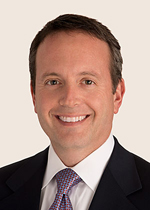 |
| Turing CEO Martin Shkreli |
How much damage can one person do? In the case of the pharma industry this week, the answer was quite a lot. That one person was Martin Shkreli, the CEO of Turing Pharmaceuticals, who hiked the price of its newly purchased toxoplasmosis drug Daraprim by more than 5000%. Universal social media criticism and outrage over "price gouging" followed, along with a financial hit to biotech stocks. Then late Tuesday, Shkreli took it back--at least partly. He told ABC News, "We've agreed to lower the price on Daraprim to a point that is more affordable and is able to allow the company to make a profit, but a very small profit."
Meanwhile, Turing's chief communications officer jumped ship after less than two months on the job mid-controversy. Craig Rothenberg told PRWeek the split was "completely amicable," noting that the fit just wasn't right for him.
Unfortunately for pharma and its already bottom-of-the-industry-polls reputation, the damage was already done. If Shkreli is, as the Daily Beast called him, "pharma's biggest a**hole," the problem is still bigger than one greedy and egocentric profiteer. The ongoing collateral tarnish of pricing issues on the entire industry's reputation is one it can't afford if it expects to maintain trusting relationships with physicians and consumers.
"The problem is that Martin Shkreli is not the drug industry, but it would be easy for someone on the outside to mistake him for the drug industry. Particularly if you're not overly fond of the drug industry to start with, as many people aren't," said Derek Lowe, a medicinal chemist and author of the blog In the Pipeline, in an interview.
Frank David, founder and managing partner at Pharmagellan, blogging on Forbes, agreed. "The risk to all pharma companies is that this could become a story not about a single biotech, but about the industry as a whole and its insensitive, unethical pricing practices," he said.
Both men saw the Turing flagrant price hike as an opportunity for pharma executives and industry groups to speak up and take a stand against Shkreli's move. But both men were disappointed, although each had predicted little industry reaction.
Trade group PhRMA did tweet a disavowment of Turing noting "@TuringPharma does not represent the values of @PhRMA member companies."
 |
| Allergan CEO Brent Saunders |
Allergan ($AGN) CEO Brent Saunders was perhaps the lone major pharma CEO to step up in defense, telling Jim Cramer on CNBC that the Turing case was just "one egregious situation." His company and others don't participate in "egregious" price increases, Saunders said. The biotech industry group BIO gave a lukewarm statement to TheStreet that said biotech should develop drugs and cures that are accessible by all people, with the same principle applying to older drugs as well.
And that was about it--executives from the rest of the industry stayed publicly mum. TheStreet's reporter Adam Feuerstein noted he couldn't get any pharma CEOs to comment on the record. Execs commented privately to FierceBiotech as well, but didn't take their arguments public.
"The problem is that silence gives consent. People will say 'well, they're not saying anything against him, so they must be with him,'" Lowe said. "Staying silent looks like you're OK with it."
And as David wrote, "We've seen this movie before -- and we're about to see it again, this time in drug pricing. Although Turing's hefty hike may fail the red-faced test, no bright line divides it from what has become standard industry practice: annual double-digit percentage price increases on marketed drugs, year after year. Yes, 15% is less than 5,000% -- but they both lie on a spectrum, and if pharma's dismal approval rating continues to lie just below that of insurance companies, it's hard to imagine much public sympathy materializing when companies try to explain the difference. Pharma execs probably won't step into the fray because they believe that critiquing extreme price hikes like Turing's will make their own practices more vulnerable to scrutiny --but that view is horribly misguided, because the horse has already left the stable."
- get the latest from FierceBiotech
- see Lowe's column
- read David's Forbes article
Special Report: 10 big brands keep pumping out big bucks, with a little help from price hikes